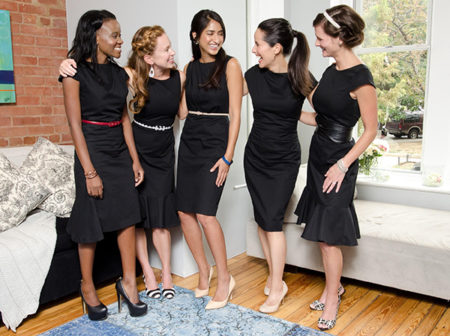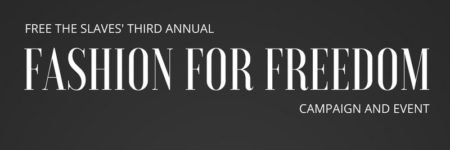“The industry is ready, and I’m ready,” says Rebecca Ballard when asked ‘why now’ about her brand, Maven Women. The brand, which was fashioned into existence in 2016, aims to provide the working woman with a professional wardrobe that puts ethics and sustainability at the forefront.
Rebecca created Maven Women to fill a need that she felt was being overlooked by the rest of the fashion industry – an aesthetic suitable for a professional setting but that still embraced her morals and values. While Rebecca was familiar with a number of ethical and sustainable brands, she noticed that many of them catered more toward a “bohemian” or “hippie” style, and few offered suitable workwear options.
“A lot of people see things like fairtrade and human rights sidelined to really hippy-chic [styles] or younger women,” Rebecca explained, adding that Maven Women aims to serve women of various ages and with varying lifestyles.
This idea speaks to the background of the brand’s name, as Rebecca explained “a maven is someone who is knowledgeable about their field and women who are knowledgeable, women who are empowered, and women who want to empower others, especially other women.” The notion that empowered women empower women drives Rebecca’s desire to ignite change in the fashion and fairtrade industries.
Maven Women particularly challenges the notion of “fast fashion.” The brand purposefully creates clothing that is long lasting, rather than simply trendy. Rebecca’s pieces are “investment pieces,” she explained, “you pay more for them but their per wear cost is actually lower than a trendier piece” because they last longer.

The items’ higher price points also allow Rebecca to pay those creating the garments a living wage. “This industry has caused a lot of harm. We have hurt a lot of people. We are still hurting a lot of people, and the answer to that is empowerment,” said Rebecca. By following Fair Trade Federation Principles – such as fair payment, no child or forced labor, good working conditions, and respect for the environment, among other standards – Rebecca can ensure that ethics are at the forefront of her brand’s production practices, and it is through these methods that those working in the garment industry are empowered.
This idea, prioritizing ethical production practices, is precisely what Free the Slaves is campaigning for with our Fashion for Freedom Campaign. If workers’ well-being and livelihoods are valued by the consumer, the fashion industry will have no choice but to follow Rebecca’s lead and embrace ethical and sustainable practices. Because of Rebecca’s leadership in this type of work, we here Free the Slaves were thrilled when she agreed to join our panel discussion at the upcoming Fashion for Freedom Event this summer.
Maven Women actively seeks to partner with nonprofits working on issues related to fashion, from worker rights to environmental concerns to ending human trafficking. When asked about this emphasis, Rebecca said: “I am passionate about industry collaboration. And I think it is really important that the nonprofit community comes together with the fashion community.” We here at Free the Slaves couldn’t agree more.
Learn more about Rebecca and Maven Women at www.mavenwomen.com, and come hear her speak at the Fashion for Freedom Event on July 28th in New York City. Tickets are on sale now!
Dorothy Spingarn is a recent graduate of American University with a bachelor’s in anthropology and soon-to-be first-year law student at Hofstra University. Her interest in intellectual property and design rights in fashion led to her passion for human trafficking and ethical fashion. During her time at Free the Slaves, she was simultaneously writing her senior thesis, which focused on personal consumption of ethical fashion, in hopes to further understand the reasoning that consumers have for shopping the way that they do. She hopes to further this research to help change the way people shop. Her future plans include using her research and her law degree to affect how the fashion industry operates with respect to its workers and the ownership of cultural designs.

